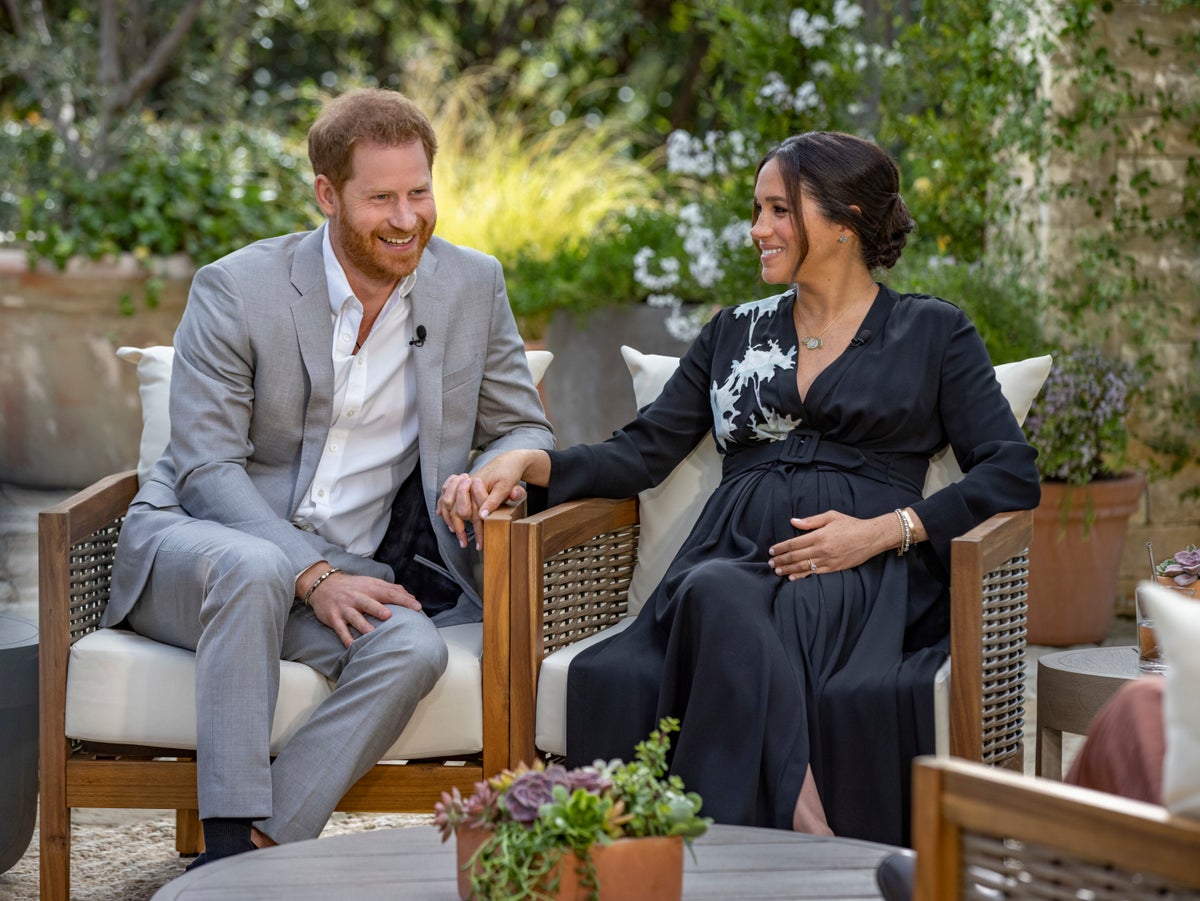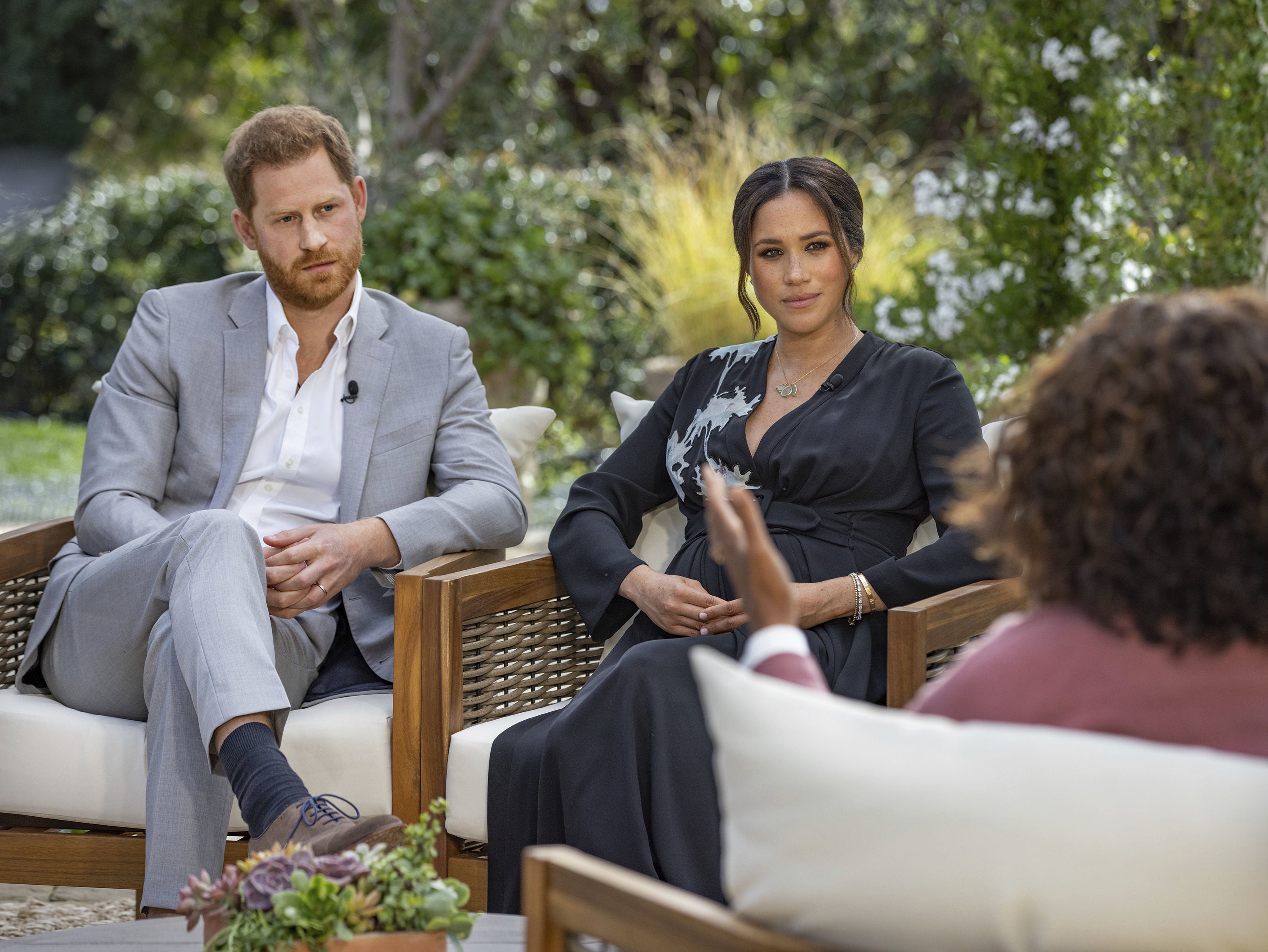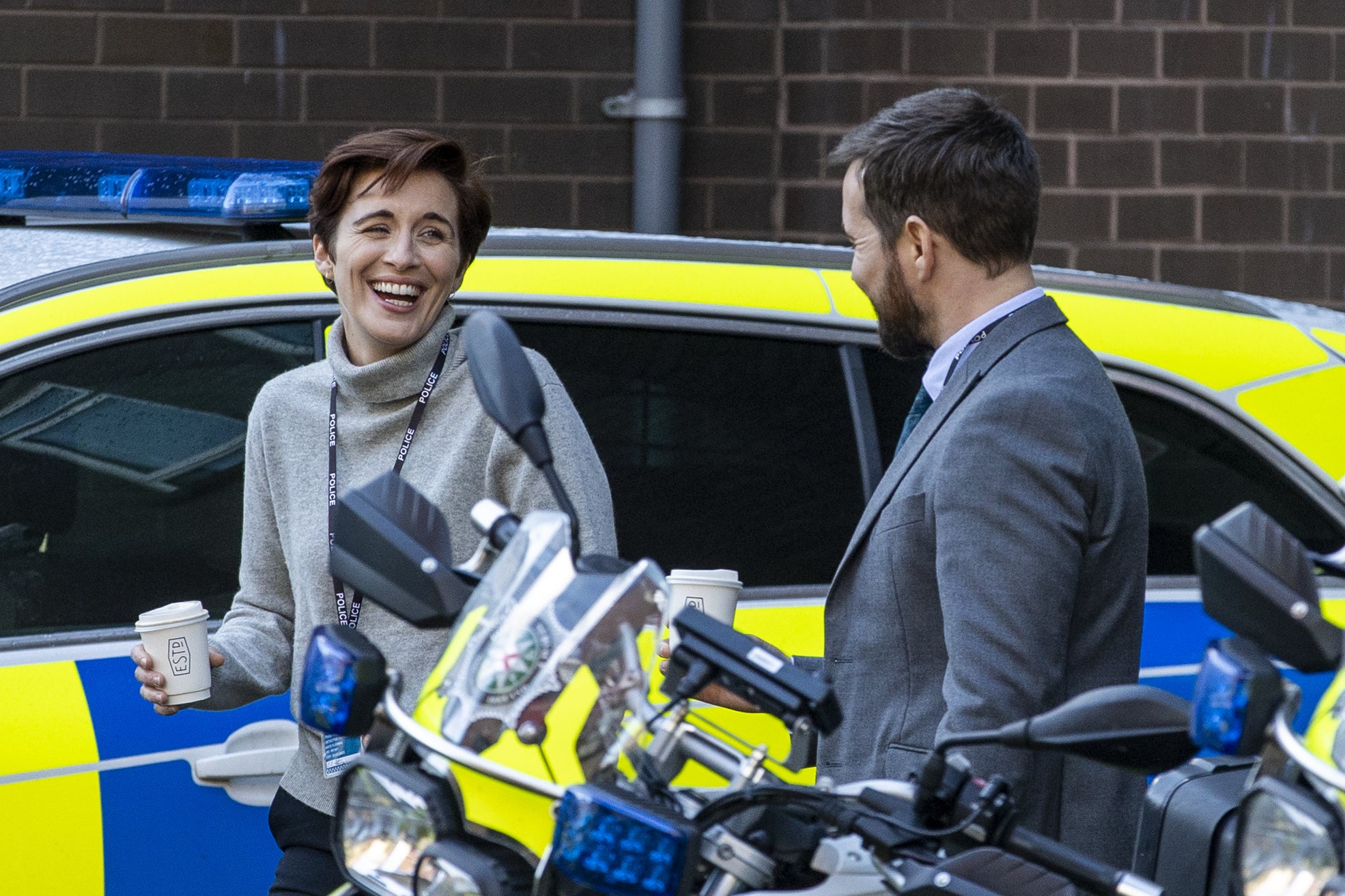
Oprah Winfrey’s explosive interview with the Duke and Duchess of Sussex was the most watched TV programme in Northern Ireland last year with more than half a million people tuning in.
According to data from Ofcom, 531,000 people in the region watched Meghan and Harry in March last year as they made a series of allegations against the royal family.
The couple accused a member of the family – not the Queen or the Duke of Edinburgh – of making a racist comment about their son Archie.
The duchess – the first mixed-race member of the modern monarchy – said a fellow royal was worried about how dark Archie’s skin tone might be before he was born.

Meghan said she had had suicidal thoughts but her approaches to the monarchy for help were turned down.
Ofcom’s latest Media Nations Northern Ireland report showed Line Of Duty and Bloodlands, both of which were filmed in Northern Ireland, were the second and third most watched programmes in the region.
Each drama attracted more than half a million viewers.
Local news programmes UTV Live and BBC Newsline also featured prominently in the list of most-watched programmes.
The data revealed that younger adults in the region watch eight times less scheduled TV than those aged 55 and over, as the generation gap in media habits reaches a record.
People aged 16-24 spent 40 minutes in front of broadcast TV on average every day last year – a fall of three-quarters in the past decade.
Those aged over 54 still spend around a third of their waking day enjoying broadcast TV, sitting down for five and a half hours daily.

Overall, people in Northern Ireland spent an average of three hours and one minute watching broadcast TV on a television set last year, down 12 minutes on the previous year.
Ofcom said the changes in younger adults’ viewing habits reflect the popularity of US-based, on-demand streaming services.
Some 70% of homes now have a paid-for service, but after years of strong growth in subscription video-on-demand (SVoD), the rate of increase has started to slow.
It was 70% in the first three months of this year, compared with 68% in the last three months of last year.
The market is still dominated by the US-based streamers – Netflix remains the most popular SVoD service in the region, followed by Amazon Prime Video and Disney+.
The report also showed that free video-on-demand services (BVoD) from UK-based broadcasters are extremely popular, making up four of the five most popular free-to-view platforms for watching programmes, films and other video.
BBC iPlayer was first on 73%, followed by ITV Hub/STV Player (56%), All4 (39%) and My5 (27%).
Broadcast television is still the place to go for news, big event programming and locally based dramas— Jonathan Rose
Ofcom’s director for Northern Ireland Jonathan Rose said: “The generational gap in viewing habits is becoming wider with younger people rarely sitting down to watch TV in the way that older people do.
“Traditional broadcasters face tough competition from online streaming platforms, which they are partly meeting through the popularity of their own on-demand player apps, while broadcast television is still the place to go for news, big event programming and locally based dramas.”
Social video platforms are also competing for viewing time and are particularly popular among younger age groups.
Internet users in Northern Ireland aged 15 and above spent on average 21 minutes per day on TikTok and 39 minutes per day on Facebook and Messenger in March.
About half of adults in Northern Ireland use BBC One and UTV for news in general.
Other TV channels in the news top 10 included Sky News Channel, Channel 4 and BBC News Channel.
Social media ranked highly, with Facebook the third most-popular source of news (34%).
The report also found that people in Northern Ireland are more likely to use radio for news than in England, Scotland and Wales. Local radio continues to outperform national stations, accounting for 58% of listening – the highest across the four UK nations.
Radio is also benefitting from the growth in smart speaker ownership, with 6% of listening.
Among people aged 16 and above in Northern Ireland, 49% said they had a smart speaker in their home, considerably higher than in the UK as a whole (39%).







